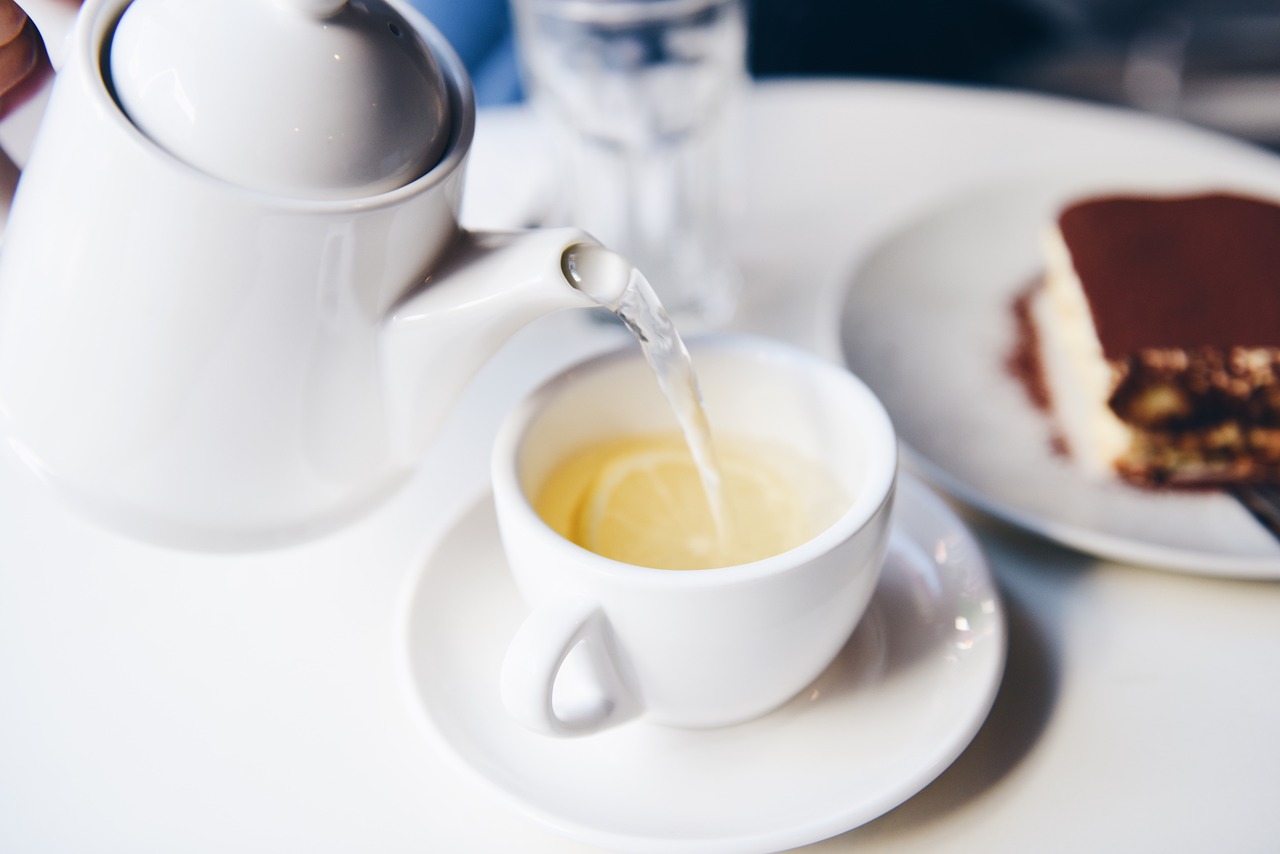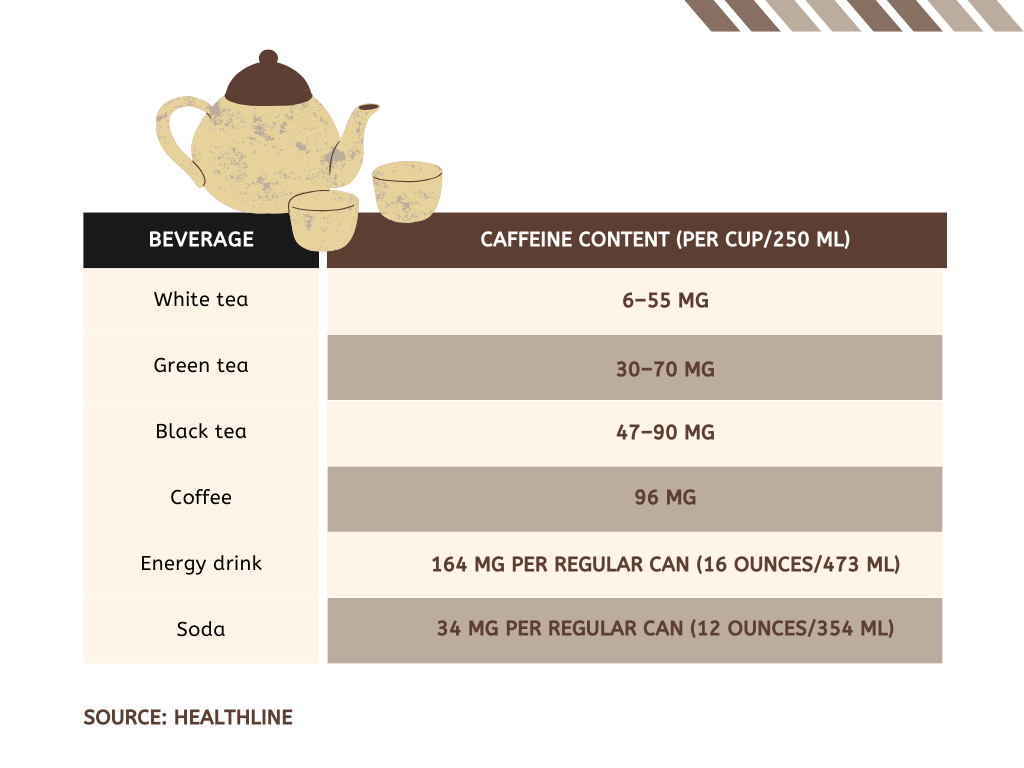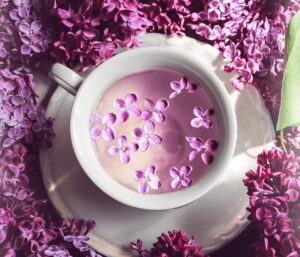If you’re a tea enthusiast or simply someone looking to enhance your wellbeing, the hidden gem you’ve been searching for might be white tea. Amongst the myriad types of teas, white tea has been quietly brewing its mark on the health scene. But what exactly is white tea? Why should you incorporate it into your daily routine?
Famed for its subtle, delicate flavor and high antioxidant content, white tea boasts a plethora of health benefits that range from boosting heart health to promoting healthy skin. The health benefits are due to the fact that white tea has both, anti-oxidant, as well as anti-inflammatory properties. Furthermore, the caffeine content in white tea is lower than in green tea. it can also be used topically! These are the reasons white tea is gaining popularity. This lesser-known cousin of green and black teas is indeed a brew worth getting to know.
In this article, we will explore the world of white tea, answering questions like – What are its potential health benefits? How is it different from other teas? How can you brew the perfect cup of white tea? Let’s dive into the unique universe of this extraordinary elixir.
When should you drink white tea?
White tea is a versatile beverage that can be consumed at any time of the day, depending on your personal preferences and lifestyle. However, it’s crucial to understand how the drink can fit into your day and align with your health goals to extract maximum benefits.
- Begin your day with a cup of white tea. This provides a gentle caffeine kick, just enough to wake you up without the jitters associated with coffee or stronger teas. The presence of L-theanine in white tea also promotes calm alertness, helping you start your day on a serene note.
- In the afternoon, as stress levels may be creeping up, white tea can be an excellent choice. The low caffeine content won’t interfere with your sleep routine, while the antioxidants can help combat stress-induced free radicals. The subtle flavors can provide a calming break, a little “me time” amidst the hustle and bustle.
- Drinking white tea in the evening or before bedtime can be part of your winding down routine. While it does contain some caffeine, it is significantly lower than in black or green tea. The calming effect can ease you into a good night’s sleep. However, if you’re extremely sensitive to caffeine, it might be better to avoid it right before bed.
Lastly, it’s not just about when but how you drink it.
To reap the full benefits, use freshly boiled water cooled down to about 80°C (176°F) and let the tea steep for around 1-5 minutes. This will ensure the delicate flavor and beneficial compounds are well preserved.
In essence, integrating white tea into your day depends on personal preference and individual sensitivity to caffeine. Its smooth flavor and health benefits make it a worthwhile addition to your daily routine.
Is white tea better than coffee?
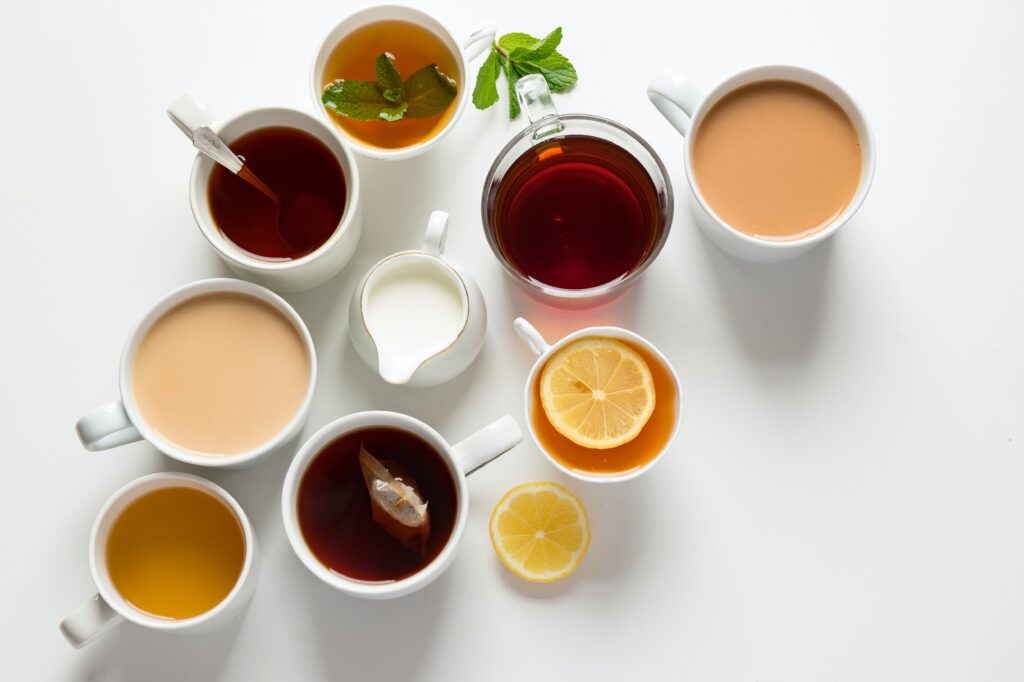
The comparison between white tea and coffee can depend heavily on personal preferences and individual health needs. However, there are a few key factors that could make white tea a preferable choice for some.
- Caffeine content: Coffee generally contains significantly more caffeine than white tea. This higher caffeine content can lead to a greater energy boost, but it can also cause jitteriness or disrupt sleep for some people. White tea provides a gentler uplift, thanks to its lower caffeine content and the presence of L-theanine, an amino acid known to promote relaxation without drowsiness.
- Antioxidants: Both white tea and coffee contain antioxidants, but white tea is particularly rich in a type known as polyphenols. These compounds have been linked to various health benefits, including heart health and reducing inflammation.
- Taste and experience: Coffee has a robust, distinctive taste and is often consumed for its invigorating effect. White tea, on the other hand, has a delicate, subtly sweet flavor that many find calming and enjoyable. The act of brewing and drinking tea can also serve as a mindful moment of calm in your day.
However, it’s important to note that both beverages can be part of a healthy lifestyle. Whether you prefer white tea, coffee, or a combination of the two may depend on your taste, caffeine tolerance, and individual health goals.
As always, moderation is key. It’s always a good idea to consult with a healthcare provider if you have specific concerns or conditions.
How does white tea taste?
White tea offers a unique taste experience, widely appreciated for its subtlety and sophistication. The flavor profile is often described as light, delicate, and slightly sweet, with notes of honey, apricot, and jasmine. Unlike the robust, tannin-heavy character of black tea or the grassy, vegetal taste of green tea, white tea is more nuanced and less assertive.
The lightness of the taste is largely due to the minimal processing the tea leaves undergo. Picked just before the tea plant’s leaves unfurl, the young buds are simply allowed to wither and dry in natural sunlight. This minimalistic treatment preserves the soft, fresh characteristics of the leaf, imparting a gentle, silky flavor to the brewed tea.
Also, white tea lacks the astringency found in other types of tea. Instead of a strong, bitter finish, it leaves a pleasant, mellow aftertaste that lingers on your palate. This lack of bitterness makes it particularly appealing to those new to tea or those who enjoy lighter beverages.
However, the exact flavor can vary based on the type of white tea and how it’s brewed.
For example, Silver Needle, a premium variety of white tea, is known for its creamy, melon-like flavor. White Peony, another popular variety, tends to have a fuller, more floral taste. Brewed properly, every cup of white tea is a serene and exquisite experience, a testament to the beauty of simplicity.
THE COMPOSITION OF WHITE TEA
Let us look at what white tea is made out of.
Does white tea have collagen?
White tea does not directly contain collagen, the protein responsible for skin elasticity and joint health. However, it is rich in antioxidants, particularly a type known as catechins. These antioxidants can protect the body’s collagen from damage by free radicals, unstable molecules that can degrade collagen and lead to signs of aging such as wrinkles and joint pain.
In addition, research has suggested that white tea may help to promote the production of new collagen. A study found that white tea extract could enhance the production of collagen and elastin in human skin cells. Elastin is another key protein that gives skin its elasticity.
While more research is needed to fully understand these effects, it is clear that white tea has several properties that could potentially benefit the body’s collagen.
However, if your primary goal is to increase your collagen intake, you might want to consider foods that contain collagen, such as bone broth, or a collagen supplement, after consulting with a healthcare provider.
So, while white tea may not directly provide collagen, its high antioxidant content and potential to stimulate collagen and elastin production make it a beneficial addition to a skincare regimen or overall health routine.
Is there a lot of caffeine in white tea?
The caffeine content in white tea is generally lower compared to other types of teas such as black tea and green tea, and significantly lower than coffee.
On average, an 8-ounce cup of white tea contains between 15 to 30 milligrams of caffeine. This is contrasted with green tea, which usually has between 20 to 45 milligrams per cup, and black tea, which contains approximately 40 to 70 milligrams per cup.
Coffee, on the other hand, typically has between 95 to 200 milligrams of caffeine per 8-ounce cup. However, it’s important to note that the exact caffeine content can vary depending on several factors, including the specific type of white tea, how it’s brewed, and the length of time it’s steeped.
For instance, a white tea steeped for a longer time or at a higher temperature may contain more caffeine. If you’re trying to limit your caffeine intake, white tea can be a good choice due to its lower caffeine content.
But keep in mind that it does still contain some caffeine, so if you are particularly sensitive to caffeine or have been advised by a healthcare provider to avoid it, it’s important to take this into account.
THE BENEFIT LANDSCAPE OF WHITE TEA
There are numerous benefits to white tea, from weight loss to diabetes. But let us now look at the most prominent benefits of white tea.
Is white tea anti-inflammatory?
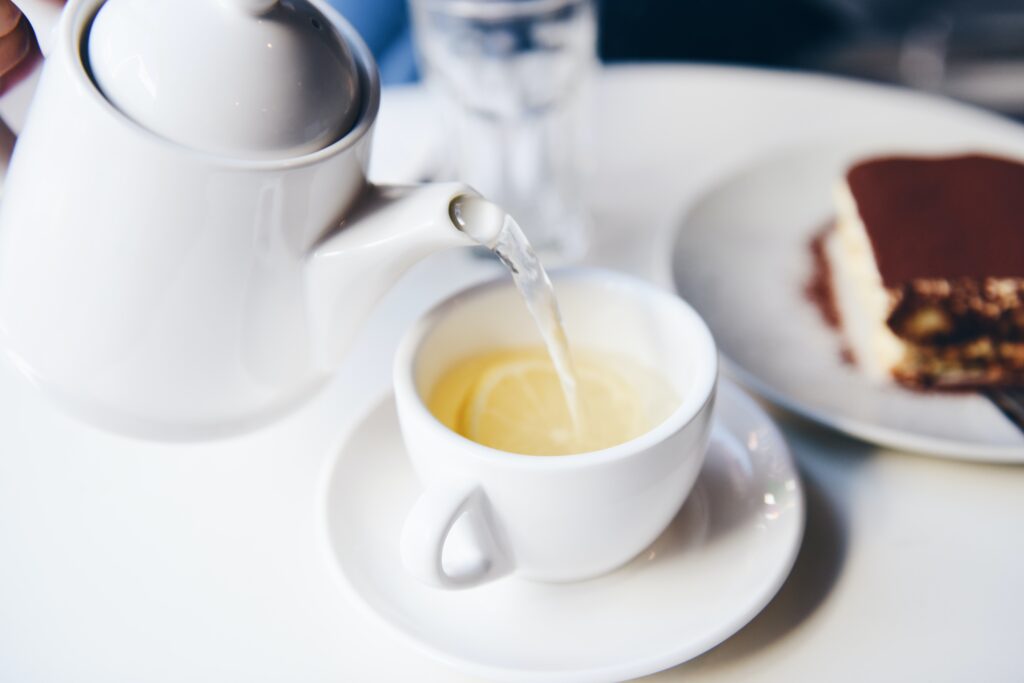
Yes, white tea is known for its anti-inflammatory properties. These benefits primarily stem from its high concentration of polyphenols, a type of antioxidant. The polyphenols found in white tea include catechins, flavonoids, and tannins, which have been shown to reduce inflammation and help fight against chronic diseases like heart disease and cancer.
White tea’s anti-inflammatory benefits may also extend to skin health. Some research suggests that it can help reduce inflammation caused by skin disorders. Additionally, the antioxidants found in white tea may help protect the skin from damage caused by oxidative stress, which can lead to premature aging and inflammation.
Furthermore, a study showed that white tea extract had anti-inflammatory and antioxidant effects that could potentially slow the breakdown of elastin and collagen in the skin, proteins that keep skin smooth and elastic.
While these results are promising, keep in mind that more research is needed to fully understand white tea’s anti-inflammatory effects and to what extent they may impact health. As always, it’s advisable to consult with a healthcare professional for personalized advice.
But, with its smooth, delicate flavor and array of potential health benefits, there are certainly plenty of reasons to consider adding white tea to your daily routine.
Does white tea help you sleep?
White tea, although it contains caffeine, has a lower amount than other types of tea like black or green tea, and much less than coffee. White tea might aid sleep is through its L-theanine content, an amino acid found in tea leaves. L-theanine promotes relaxation and reduces stress without causing drowsiness, which can help prepare the body and mind for sleep. Some research also suggests that L-theanine may improve sleep quality.
However, sensitivity to caffeine varies among individuals, and for some, even the modest amount of caffeine in white tea could interfere with sleep. While some people might find a cup of white tea to be a calming part of their bedtime routine, others, particularly those who are more sensitive to caffeine, might do better avoiding it close to bedtime.
If sleep is a concern, it would be best to try drinking white tea earlier in the day to see how it affects you, and then gradually move closer to bedtime if it doesn’t appear to disrupt your sleep. As with any concerns related to diet and sleep, it’s always a good idea to consult a healthcare professional.
Can I put white tea on my face?
Yes, white tea can be used topically on the skin. Its rich antioxidant content, especially its high level of epigallocatechin gallate (EGCG), makes it beneficial for skin health. These antioxidants can help to reduce inflammation, protect against sun damage, and fight signs of aging.
White tea also contains anti-bacterial and anti-viral properties which can help to cleanse the skin and prevent acne. Moreover, research has suggested that white tea may enhance the production of collagen and elastin, proteins that help maintain the skin’s elasticity and firmness.
To use white tea on your face,
- You can brew a cup of white tea, allow it to cool, and then apply it to your face with a soft cloth. You can also steep white tea bags and place them under your eyes to help reduce puffiness and dark circles.
- Another method is to make a DIY face mask. You can mix white tea with other skin-friendly ingredients like honey, yogurt, or aloe vera and apply it to your face.
However, before applying white tea or any new substance to your skin, it’s always a good idea to do a patch test on a small area of skin first to make sure you don’t have any adverse reactions.
Additionally, keep in mind that while white tea can be beneficial for skin health, it should be used as a part of a comprehensive skincare routine, not as a replacement for other skincare practices or products.
What are the side effects of white tea?
While white tea is generally considered safe for most people and offers a range of potential health benefits, it can, like any food or drink, have potential side effects for some individuals.
Most of these side effects are related to its caffeine content, albeit lower compared to other teas and coffee:
- Caffeine Sensitivity: For individuals sensitive to caffeine, even the modest amount in white tea might lead to insomnia, jitteriness, or anxiety. It may also exacerbate heart palpitations or cause an upset stomach in some individuals.
- Pregnancy and Breastfeeding: While moderate consumption of white tea is likely safe during pregnancy and breastfeeding, excessive intake might increase the risk of miscarriage or other adverse effects due to its caffeine content. It’s always best for pregnant or breastfeeding individuals to consult with a healthcare professional regarding caffeine intake.
- Iron Absorption: Tea contains tannins, compounds that can inhibit the absorption of iron from food. If you have iron deficiency or are at risk, it might be best to avoid drinking tea with meals.
- Bleeding Disorders: The caffeine in white tea can increase the risk of bleeding. Individuals with bleeding disorders or those preparing for surgery should be cautious.
- Osteoporosis: Some research suggests that excessive amounts of caffeine can increase the amount of calcium flushed out in the urine. This could potentially weaken bones over time, so those with osteoporosis might want to limit their white tea consumption.
- Drug Interactions: The caffeine in white tea may interact with certain medications, enhancing their effects or side effects.
Remember, everyone’s body responds differently, and what works well for one person might not work as well for another. If you’re considering adding white tea to your routine and have any health conditions or concerns, it’s always a good idea to consult with a healthcare professional.
What are the different variants of white tea available in the market?
The following table discusses popular variants of white tea, their key properties like taste, color, texture, and average price range.


Above all, the best part is that white tea is easy to find, even in the local grocery store, which makes it even more preferable than other varieties.
Conclusion
White tea presents itself as a remarkable beverage, delicately flavored and packed with numerous health benefits. Its antioxidant-rich profile offers potential anti-inflammatory properties, aids in skin health, and provides a protective shield against free radicals.
While it contains caffeine, the amount is less than in other teas or coffee, making it a suitable choice for those seeking a milder alternative. With varieties such as Silver Needle and White Peony, each offering unique taste profiles, the world of white tea is vast and worth exploring.
Whether you’re looking to incorporate a soothing drink into your routine or searching for a gentle health booster, white tea could be the answer.
As with any dietary changes, it’s always wise to consider personal health conditions and, when necessary, consult with a healthcare professional. So why wait? It might just be the right time to uncover the wonders of white tea.

